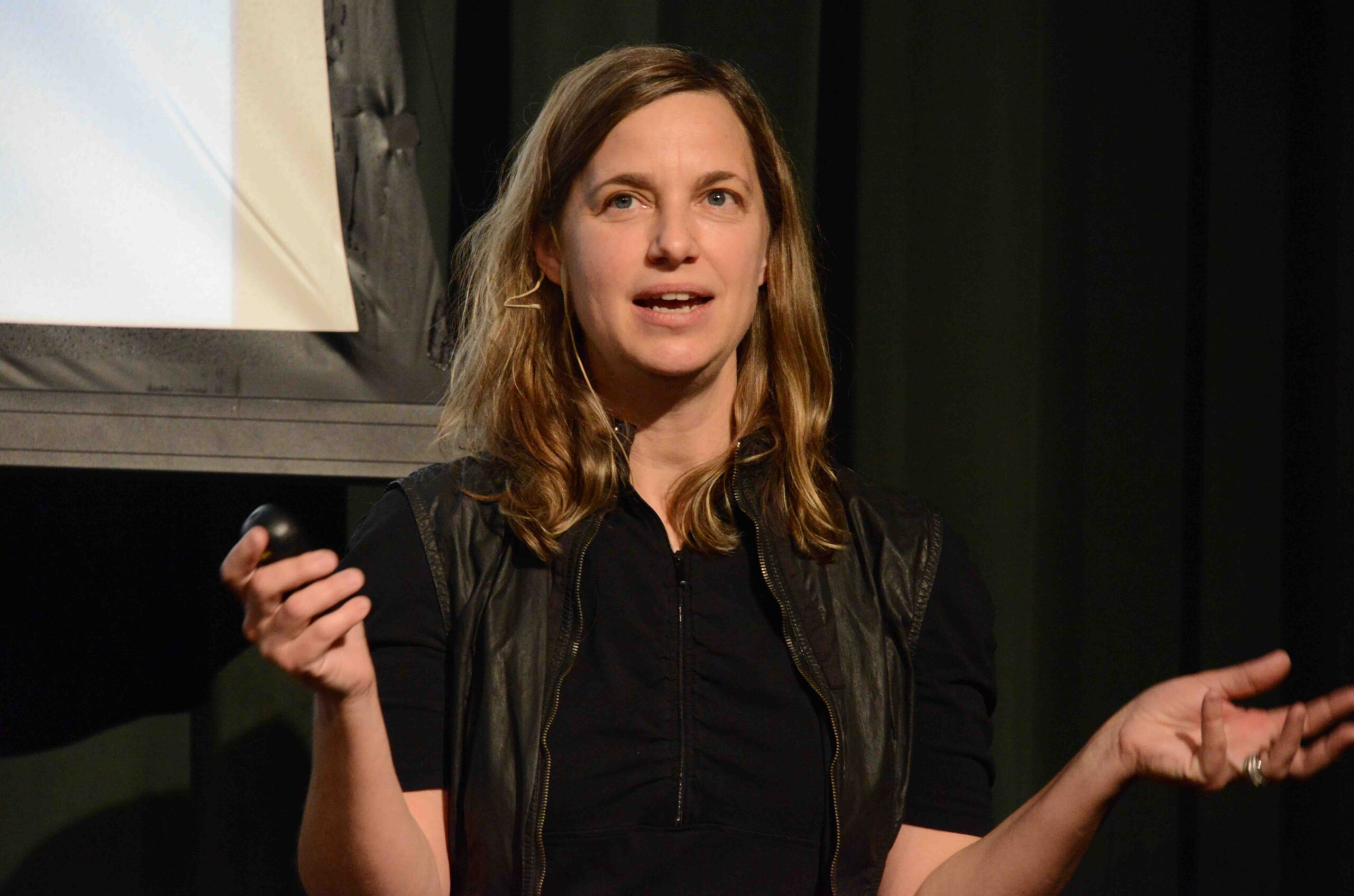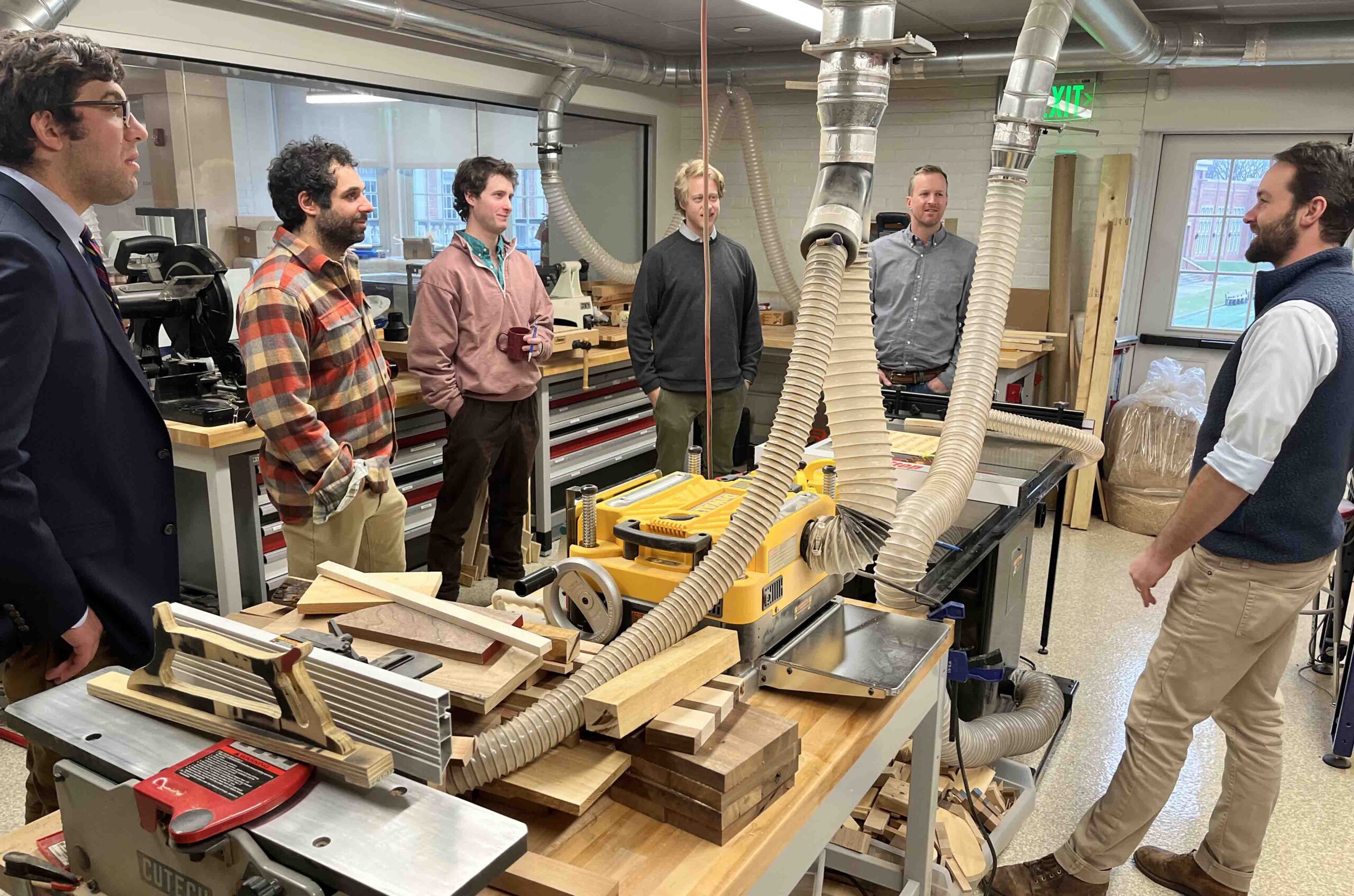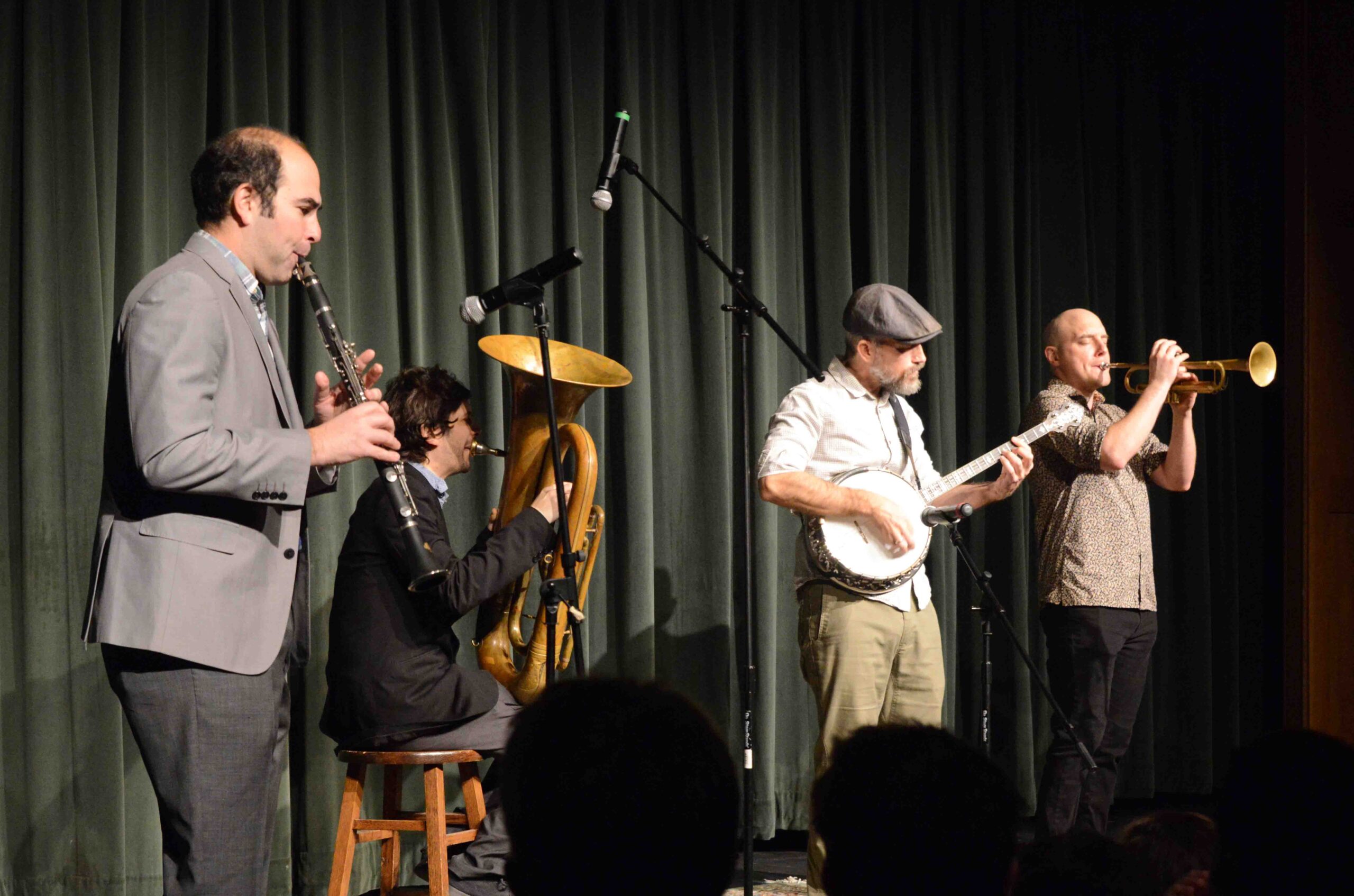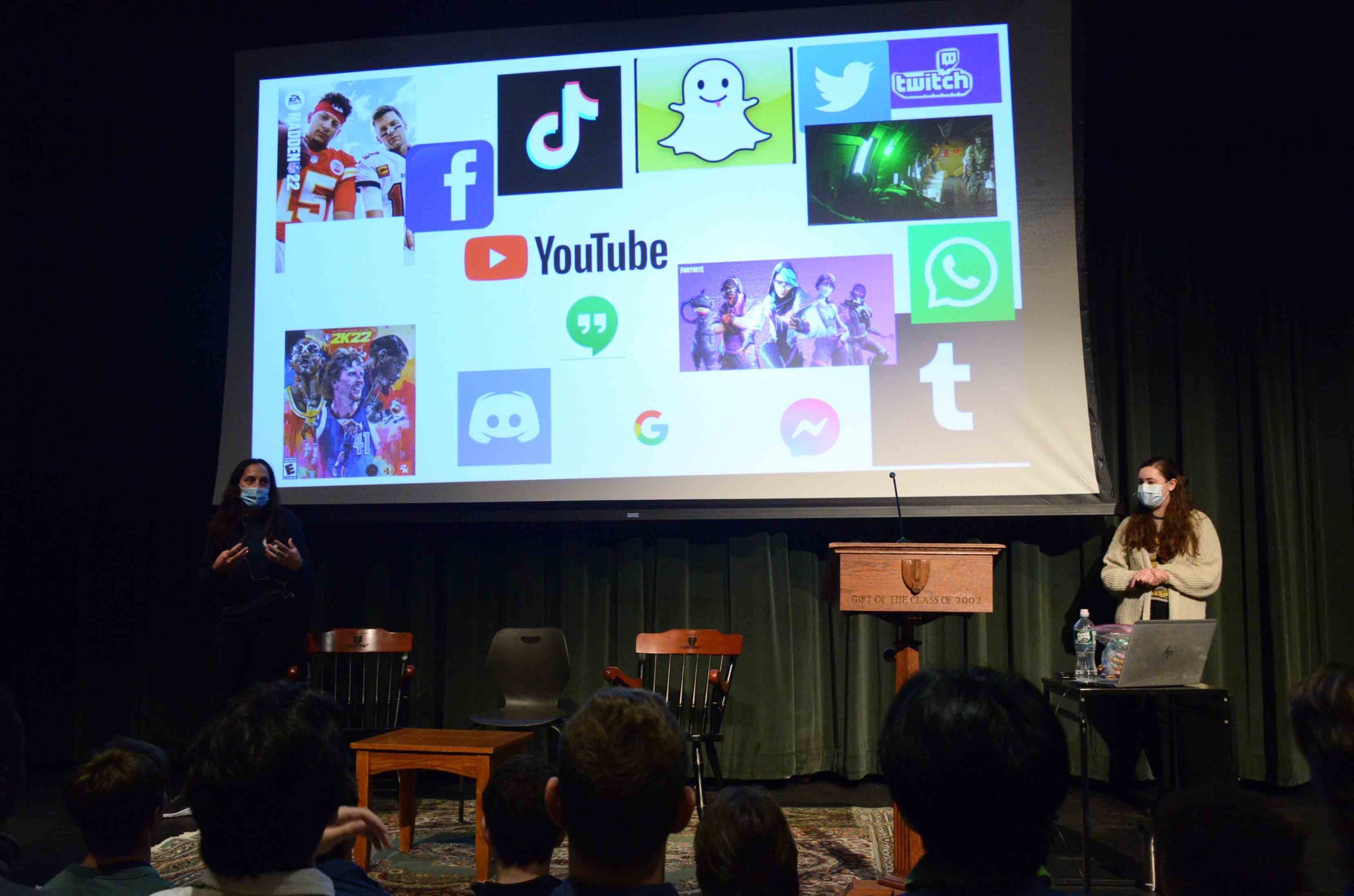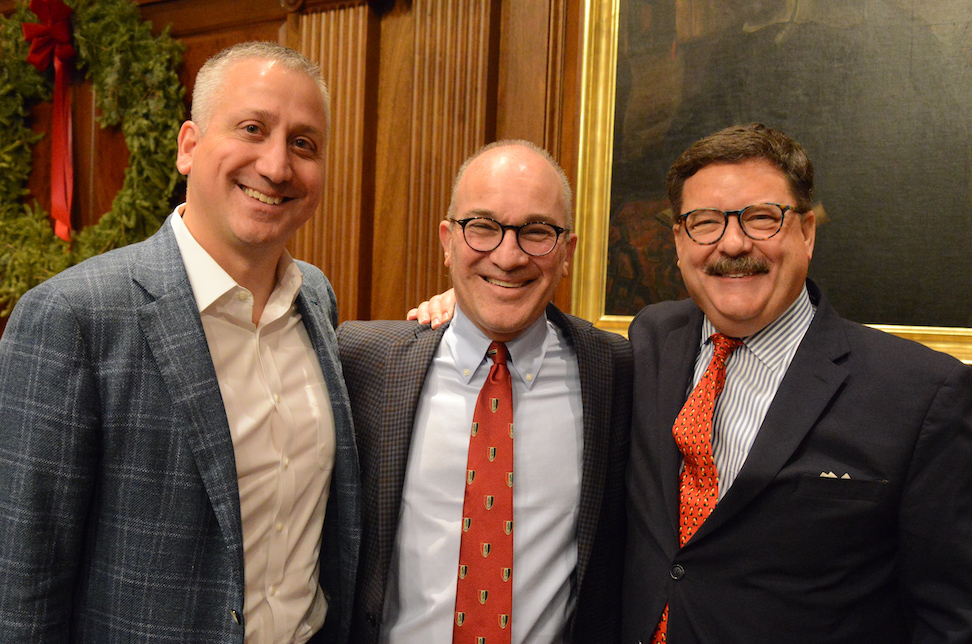On January 31, award-winning landscape architect Kate Orff—the founding principal and partner of SCAPE—delivered RL’s annual Wyner Lecture. The lecture series, established by Jerry Wyner, Class of 1943, and his sister Elizabeth Wyner Mark, is a living memorial to their father Rudolph Wyner, Class of 1912. The school was honored to have Jerry ’43 and members of his family in attendance for Ms. Orff’s presentation.
Ms. Orff’s firm, SCAPE, addresses global challenges—like climate change and environmental justice—by combining regenerative living infrastructure and new forms of public spaces. A New Yorker article described Ms. Orff as being “at the forefront of an emerging approach to climate resilience that argues we should be building with nature, not just in nature. Its guiding principle is that ‘gray infrastructure’—the dikes, dams, and seawalls that modern societies use to contain and control water—is often insufficient, and sometimes destructive. Green infrastructure, by contrast, involves strategically deploying wetlands, dunes, mangrove forests, and reefs to reduce threats of catastrophic flooding and coastal erosion, while also revitalizing the land. This carefully designed ‘second nature,’ the thinking goes, could be our second chance.”
Throughout the morning’s Hall, Ms. Orff offered examples of how her firm interacts with nature as a matter of design. Her firm is “mending the landscape” through partnering with municipalities to revive urban ecology by building parks, plazas, and other ecosystems in what historically has been concrete zones. Projects included work in Louisville, Boston, and New York City. In all these examples, Ms. Orff underscored that any urban landscape is now a template of action and collaborative thinking.
Ms. Orff’s most high-profile project is the Billion Oyster Project, a nonprofit initiative that aims to reintroduce oysters, in vast quantities, to the waterways of New York City as a critical part of her coastal-infrastructure plans. She shared how introducing oysters into the harbor begins to allow New York to hit the “reset button” for its decimated ecosystem and provides practical support in the fight against climate change and erosion.
Ms. Orff is known for leading complex, creative, and collaborative work processes that advance broad environmental and social prerogatives. In 2017, she was awarded the prestigious MacArthur Foundation “Genius Grant” Fellowship, the first given in the field of landscape architecture. In 2019, she was elevated to the American Society of Landscape Architects Council of Fellows—one of the highest honors bestowed on landscape architects practicing in the United States.
After taking the audience through her career path and these examples, Ms. Orff ended her presentation by explaining how her work at SCAPE touches on many topics and industries including science, design, art, engineering, law, government, and business. She then took several questions from eager students, including inquiries about her design process and clientele.

